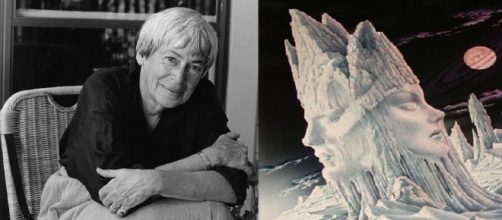Variety is reporting that Critical Content picked up the TV rights to Ursula K. Le Guin’s 1969 science fiction novel “The Left Hand of Darkness.” The material will be developed for television with Le Guin serving as a consulting producer. Le Guin has had two novels, “Earthsea” and “The Lathe of Heaven” previously adapted for the small screen.
What is the book about?’
“The Left Hand of Darkness” concerns a diplomat from Earth named Genly Ai who is sent to a planet called Gethan to persuade its various nations to join a loose interstellar confederation that he represents.
But, he is stymied by his inability to understand Gethan’s unique culture -- where all of its inhabitants are ambisexual.
The Gethans spend most of their time as androgynist beings who are neither male nor female. Periodically they undergo physiological changes that give them male or female characteristics. At that point the mating urge is overpowering. If the female Gethan becomes pregnant “she” retains her female characteristics throughout the pregnancy. The fact that people can be male or female depending on circumstances has colored all of the various cultures of Gethan in ways not possible on worlds with inhabitants having two fixed genders.
The reaction to the book’s publication
The book created a sensation when it was first published.
The novel won both a Hugo and a Nebula award in the year it came out. The book sparked considerable discussion regarding male and female roles -- how much is determined by biology and how much by culture. The novel is considered to be one of the first examples of Feminist Science Fiction and established Le Guin as a first class talent in a genre that, at the time, was still male dominated.
Why make ‘The Left Hand of Darkness’ into a TV show now?
Besides being a great story with a lot of intriguing concepts, the novel seems to have benefited from another example of feminist science fiction, “The Handmaid’s Tale,” now airing on Hulu. The comparison may be unfair, as “The Handmaid’s Tale” is a decidedly inferior work, seeking to terrify with a ludicrous dystopia, whereas, “The Left Hand of Darkness” seeks to enlighten with a different perspective on gender roles in a society where such is fluid.
There is no word yet of a potential show runner, cast, or crew. However, done right, Le Guin's book will make for thought-provoking television.


